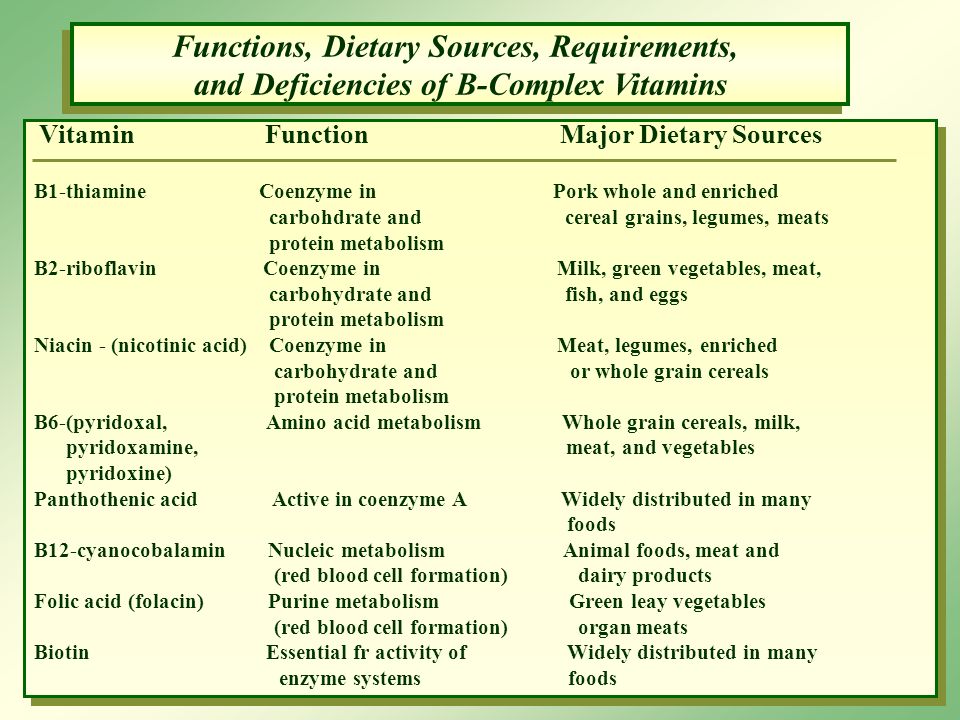Let me be VERY CLEAR. The following deficiencies are COMMON. In men and women. It represents itself differently in men vs women, as well as the individual. These deficiencies will BRING OUT THE WORST in whatever else the person might have going on. Example, if you are a worrier by nature … these deficiencies can result in anxiety. Being a very fiery go getter … these deficiencies might result in heart arrhythmias and/or high blood pressure, migraines. This is the FOUNDATION of everything. Yes there are other things, but for right now, to feel better RIGHT NOW, this list is MORE THAN ADEQUATE to help you feel better. NOW.
HERE IS THE KICKER …. THESE DEFICIENCIES PILE UP
… sometimes creating a perfect storm for feeling awful or being on the road to dying.
Example … you have something happen to you. You get into a car accident and see someone die. It’s tough. You end up with a bit of PTSD. Your body and mind/soul go through a physical stress response when you drive by the location, or see a car that looks the same. That response takes a toll on the body. The physical body gets more worn down. You get more tired. This zaps your body of all the nutrients below in it’s EXPERIENCE of the event as well as the body’s methods of responding recovering. The event AND the each follow on PTSD episode hurts/depletes the body. Then you eat carbs to help fix. Or drink. Your sleep is affected. You don’t recover during your sleep, making all of this worse. You feel tired but what you don’t know is your body is slipping further down into a hole. The hormonal system gets further degraded. Your blood sugar management system gets low from all of this. You put on weight. Your self-esteem takes a hit. You drink more. Your magnesium goes down further. Your Vitamin B. You eat worse. You sleep worse. You drink more. You stop exercising. You become diabetic. The mental stuff becomes too much and now you feel like you have anxiety. Or are depressed. You get high blood pressure. You get a heart issue. The story goes one a bit more right ….
The affects of being deficient go up EXPONENTIALLY. Creating a hole that is hard to climb out of and in most cases not cared for in all the different angles. Just a pill or two.
Or …
For this conversation, the Triage Plan, with the goal of feeling better RIGHT NOW, we are going to supplement these things. To get a big fix now. Getting these from food would take a longer (too long) of a time, assuming strict consistency and good food. Phase 2 of this program addresses adding in more nutrient dense foods to fix the deficiencies with food.
TRIAGE SUPPLEMENT LIST
Protein : 100-120+ grams daily
➕PROTEIN
Powerhouse of a macro nutritions
- Helps to create muscles, organs, nails and hair
- Helps your cells to communicate
- Facilitates muscle contraction
- Transmission of nerve signals
- Protein makes up
- Immune molecules
- Blood cells
- Hormones, Enzymes and new protein cells
Resource: https://kyrakissinger.com/maximize-nutrition-with-proteins/
Resource: https://kyrakissinger.com/protein-the-superman-macronutrient/
PTSD/ANXIETY Implication
- Amino acids (and fatty acids) will help to combat the stress response
- Amino acids (and fatty acids) will produce enzymes and hormones that will counteract the stress response
- Amino acids are some of the building blocks of enzymes and hormones, to balance out the system all of the hormones need to be created in the correct amounts to create balance and harmony. IE … being estrogen heavy, not enough resources to make enough progesterone (ladies) will result in a ratio heavy on estrogen. This is why you crave dark choc before your period. (a magnesium consideration)
➕MAGNESIUM
Magnesium is involved in numerous processes that affect muscle function including oxygen uptake, energy production and electrolyte balance. Thus, the relationship between magnesium status and exercise has received significant research attention. This research has shown that exercise induces a redistribution of magnesium in the body to accommodate metabolic needs. There is evidence that marginal magnesium deficiency impairs exercise performance and amplifies the negative consequences of strenuous exercise (e.g., oxidative stress).
Magnesium is required for the conversion of inactive D3 to active D3. You can take a lot of D3 and not actually use it because there isn’t enough magnesium available.
https://kyrakissinger.com/magnesium-is-critically-important-for-the-person-and-the-endurance-athlete/
PTSD/ANXIETY Implication
- Magnesium is THE POWERHOUSE, functioning in the mitochondria as well as with in within cells to facilitate a plethora of functions. Relaxation of muscles is one example. A big example. If you do not have enough magnesium you can experience high blood pressure and the inside of the blood vessels, endothelial lining, can not relax. Yes the lining of your vessels contract and relax. You might experience heart arrhythmia due to not being able to relax all of the heart musculature. Rest Leg Syndrome is very common and is due to not enough magnesium available to FACILITATE your leg muscles to relax. Migraines, same story with blood vessels not being able to relax.
- Magnesium plays a critical roll in the nervous system being able to down regulate. So if you tell someone to “calm down” and they are low in magnesium for instance, they WILL NOT be able to. This is why Mind Over Matter is too simplified.
- The support of the endocrine system, fight or flight system, adrenals/etc (all the same thing) is critical. The adrenals are heavily reliant on magnesium as well as other things (a b vitamin to be specific … see below). When the glands of the hormonal system aren’t working well, the balance of it all can not be created. IE … ladies end up being estrogen heavy, not enough resources to make enough progesterone. This is why you crave dark choc before your period. (a magnesium consideration)
- Anxiety is not just all in your head. It is a mental, physical and hormonal response to something. Legit. There is something. And your body is responding. It will respond in a hirewire fashion if it is deficient in magnesium (all of thse nutrients for that matter.)
➕VITAMIN D3
Vitamin D3 is a fat-soluble “vitamin”, which is actually a hormone that the body processes. Or can. Your body is stimulated to produce D3 through your EYES (which sunglasses decreases), through your skin which clothes and sunscreen decreases.
Regulation of many processes such as cell growth, neuromuscular, immune function, and glucose metabolism
Vitamin D specifically helps your body absorb calcium (and phosphate). We know a little about calcium, however, most don’t know that the body and it’s utilization of calcium is very very important. When this is wrong, you are dead or severely ill. Your blood levels of calcium MUST be correct, at the expense of your bones. This we do know.
- Strengthens bones and muscles. Works with calcium.
- Boosts immunity
- Improves mood. It has been show that low D3 will cause depression (which will cause lifestyle choices that will further low all of these.
- Reduces inflammation
- Improves heart function
IMPORTANT TO NOTE : your body can not convert the inactive form of D3 (like what you would get in a pill) without appropriate levels of magnesium. Magnesium changes the inactive form to an active form of D3 that you can use to feel freaking amazing.
All about Vitamin D
https://www.mayoclinic.org/drugs-supplements-vitamin-d/art-20363792
PTSD/ANXIETY Implication
- The implications here are probably more in the supporting and recovery aspect of PTSD and anxiety. Recovering and repairing from the stress response of things things going on.
- Your mood and sense of well being is going to be low with deficient D3.
- It is not physiologically clear how D3 affects our mood, tho it is known that it’s very important for heart and brain health. As more studies are done with will become more apparent.
- https://montarebehavioralhealth.com/vitamin-d-the-connection-to-depression-and-anxiety/#
- You all know you feel so much better when you get out in the sunshine. It’s helps. Wintertime blues makes PTSD and anxiety worse. Same system, stressed more.
➕VITAMIN B COMPLEX
The family of B vitamins is a group of eight vital nutrients that plays a plethora of roles in the body. These nutrients enable organs and body systems to function correct. Which cascades together, overlaps to result in a human body functioning optimally. Or not when one or more of these nutrients are deficient. These vital nutrients also have their own specific roles and functions in the body.
Resource: https://www.medicalnewstoday.com/articles/325292#what-are-b-vitamins
There are eight types of B vitamin, each with their own function:
- Thiamin (vitamin B-1): Heart, liver, kidney, brain. Metabolism of food (to make energy), creating neurotransmitters (feel good brain chemicals), some hormones.
- Riboflavin (vitamin B-2): Energy production, break down fats, making B3, converting B6 to a coenzyme needed.
- Niacin (vitamin B-3): Energy from our food, metabolic on the cellular level, communication among cells, expression of DNA in the cell.
- Pantothenic acid (vitamin B-5): New coenzymes, proteins and fats. Needed energy and metabolism.
- Pyridoxine (vitamin B-6): enzyme reactions, metabolism, breaking down carbs and fats, brain development, immune function.
- Biotin (vitamin B-7): break down of fats, carbs and protein, communication among cells, regulation of DNA.
- Folate (vitamin B-9): DNA replication, metabolism of vitamins and amino acids, proper cell division. (creating/repairing the body)
- Cobalamin (vitamin B-12): Creating new red blood cells, DNA synthesis, brain and neurological function, fat protein metabolism)
Together, they are called the vitamin B complex.
PTSD/ANXIETY Implication
- Deficiencies with the B vitamins is in the realm of the body just not having what it needs to function well or repair from stress and such. The deficiencies create inherit weaknesses which create areas of great imbalance. Which results in deeper depression, no desire or ability to really workout and do things. Lower energy. All of this crashes into PTSD and it’s own affects, making things so much worse.
- Your mood and sense of well being is going to be low with deficient D3.
- It is not physiologically clear how D3 affects our mood, tho it is known that it’s very important for heart and brain health. As more studies are done with will become more apparent.
- https://montarebehavioralhealth.com/vitamin-d-the-connection-to-depression-and-anxiety/#
- You all know you feel so much better when you get out in the sunshine. It’s helps. Wintertime blues makes PTSD and anxiety worse. Same system, stressed more.
COUPLE EXAMPLES OF THE B’S
Thiamin (vitamin B-1)
The heart, liver, kidney, and brain all contain high amounts of thiamin. The body needs thiamin for:
- breaking down sugar (carbohydrate) molecules from food
- creating certain neurotransmitters (brain chemicals)
- producing fatty acids
- synthesizing certain hormones
Interestingly enough, you get vitamin B’s from meat and such. So when you aren’t eating enough meat / protein, the side affects are far reaching, and component on each other.
The symptoms of a vitamin B deficiency vary depending on which B vitamin you’re deficient in.
They can range from fatigue and confusion to anemia or a compromised immune system. Skin rashes also can occur.

Vitamin B12 deficient is very popular right now.
A vitamin B12 deficiency can lead to disruption in the nervous system and the circulatory system.
Vitamin B12 deficiencies can lead to megaloblastic anemia, a condition where the bone marrow produces large abnormally shaped red blood cells that do not function properly.
THIS MEANS IF YOUR RED BLOOD CELLS AREN’T WORKING RIGHT, YOU MIGHT NOT NEED AN IRON PILL.
Psychological conditions such as dementia, paranoia, depression, and behavioral changes can result from a vitamin B12 deficiency. Neurological damage sometimes cannot be reversed.
Vitamin B12 deficiency can cause the following symptoms:
- tiredness or fatigue
- weakness
- constipation
- loss of appetite
- weight loss
- numbness and tingling in the hands and feet
- balance problems
- confusion
- poor memory
- soreness of the mouth or tongue
Resource: https://www.healthline.com/health/symptoms-of-vitamin-b-deficiency#vitamin-b-12
